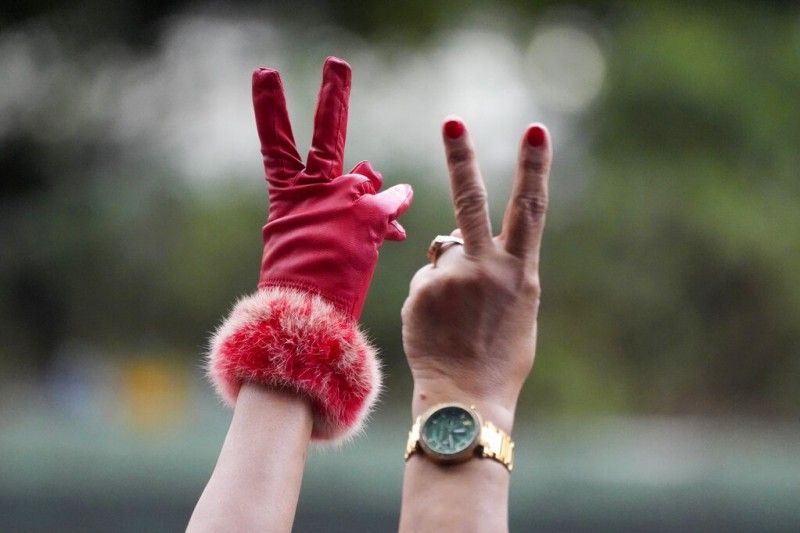150 | Regional resources are bound to family politics, why is it difficult for Philippine liberals to break through

Text / Wen Kandi (Original post published on May 13, 2022)
The Philippines held general elections on May 9. The results showed that the son of former dictator Marcos, Ferdinand Romualdez Marcos Jr., and the daughter of current President Duterte, Sarah. Duterte (Sara Zimmerman Duterte-Carpio) is ahead of his competitors by a huge gap and is determined to be elected president and vice president.
Many people worry that this symbolizes the "restoration of authoritarianism" in the Philippines, and attribute the result to the people's "historical forgetfulness" and "advocacy of violence to solve problems". Some people also pointed out that the poor performance of the government after the democratization of the Philippines is the reason why the people lose confidence in democracy and then embrace the strongman again. Although the above factors do exist, the explanatory power is still slightly insufficient.
This article will provide another perspective on understanding the current political situation in the Philippines from the perspective of ethnic relations and geography.
Family competition and cooperation in the relationship between patrons and servants
Anyone with a little knowledge of Philippine politics knows that families play a more important role in politics than political parties. The political family in the Philippines is mainly derived from the leader of the basic political unit in the pre-colonial era, the Barangay (somewhat similar to the Zhuo Qi Du in "Scarlo"). The Spanish colonial era, based on the convenience of rule, not only did not eliminate these local leaders, but incorporated them into the feudal system, which not only solidified and hereditary the originally highly mobile leaders, but also allowed these local leaders to have more in their territories. Economic and governance privileges have given the Philippines, like many Latin American countries, a situation of "grand landownership".
Different from Latin America, the Spanish colonists were very passive or even resistant to the language assimilation of the Filipinos. Therefore, until the end of the Spanish colonial era, the Philippines did not form a unified language field. Only the elites of the landlord class were familiar with Spanish. Cross-regional and cross-border exchanges are possible, and ordinary civilians are confined to their ethnic groups and regions. Although English education was strongly promoted in the colonial era of the United States, despite the overall shortage and uneven distribution of educational resources, English proficiency also produced differences between different regions and classes. As a result, the social relations in the Spanish era continued and produced The effect of path following. Reflected in politics, on the one hand, the landlord class can firmly control the region where it is located through long-term patronage and servant relationships, and on the other hand, through cooperation with other local families, its political influence can spread to the whole country. scope. What the electoral politics of the Philippines reflects is the co-opetitive relationship between different families, and behind this co-opetitive relationship, there are ethnic and geographical factors at play.
The geopolitics of elections
...
[This article is not finished, see "Walk the World" for the full text: Regional resources are bound to family politics, why is it difficult for Philippine liberals to break through ]
138. Epidemic travel notes (1): After crossing 4 countries, I am back on the road
139. Epidemic travel notes (2): What does it mean for foreign tourists in the UK, Portugal, and India?
140. A bowl of mutton in a water basin, a piece of rose mirror cake, and a trip to the Halal Silk Road
141. Yan Jiyu's column: "France's first female president" is one step away, what did she do?
142. Epidemic travel notes (3): Airport black hole that cannot be separated or reached
143. Jia Xuanning Column: What exactly did Mom do in the multiverse?
145. Ramadan Memories of Taiwanese Muslim Children - Shalawa and Xinsheng South Road at Night
147. Having a child is not only "pain", but also "give" to orgasm and self-worth?
150. Regional resources are bound to family politics, why is it difficult for Philippine liberals to break through?
"World Walk" is a new start-up and hopes to become a gender-conscious international news media. It hopes to interpret fascinating stories from all over the world from a new perspective that escapes dualism 🌎
From now on, we will continue to meet you in " World Walk Sehseh.world ". In the future, in-depth articles will only be published in the new station. Evening News, Weekly News and Handbook will continue to be sent on Matters. Click the link below to subscribe to the e-newsletter, and don’t miss the wonderful articles 💕
Like my work? Don't forget to support and clap, let me know that you are with me on the road of creation. Keep this enthusiasm together!


